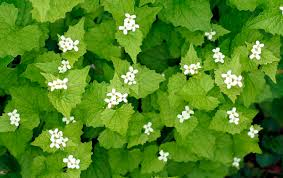One of the most productive activities to save our natural areas is to facilitate research that will make host specific biological controls available. Insects that consume the non-native invasive plant species can substitute for the controls where the species originated. Of the 15 top non-native invasive plant species in the mid-Atlantic region four (Purple Loosestrife, Mile-a-minute, Japanese Knotweed, and Garlic Mustard) now have one or two non-native insects or fungi that feed on them being released that are host specific and effective. Since the new rules of proving host specificity went into effect about 20 years ago, the problem of bio-controls harming non-target organisms has gone down to 3% of its earlier rate. With adequate research we can find bio-controls for about 30 percent of our non-native invasive plant species and reduce our work for traditional removal of non-native species by labor-intensive cut, pull and spray.

We advocate more research for host specific, effective, biological controls of non-native invasive plants in our region. Current ongoing research projects include Chinese Privet, Japanese Stiltgrass, Common Reed, Hydrilla, Oxeye Daisy, Common Tansy, Field Bindweed, Giant Reed, Giant Salvinia, Beefsteak Plant, Small Carpet Grass, Russian Olive, Russian Thistle, Scotch Broom, Water Hyacinth, wavyleaf Basketgrass, Yellow Starthistle, and Fig Buttercup. Federal and state agencies, researchers, and universities conducting this research are listed in North American Weed Classical Biological Control Research and Development Program Directory and Contacts as well as Q-Bank, 2013.
Please e-mail the following people and request that they provide additional support to these researchers to find safe and effective biological controls for these non-native invasive species. David.Schisler@ars.usda; John.Goolsby@ars.usda.gov; Patrick.Moran@ars.usda.gov; shorn01@fs.fed.us; mulyshen@fs.fed.us; rreardon@fs.fed.us; Philip.Tipping@ars.usda.gov; Link.Smith@ars.usda.gov; matthew.tancos@usda.gov; Paul.Pratt@ars.usda.gov; howard.zhang@usda.gov; Nathan.E.Harms@usace.army.mil; howard.zhang@usda.gov; osemarie.DeClerck-Floate@AGR.GC.CA;